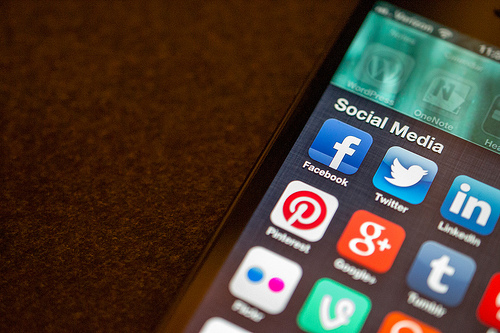A new study, published in the Annals of Family Medicine, finds that mental health apps (mobile applications—usually for a smartphone or tablet) promote a one-dimensional view of mental health. According to the analysis, the apps assume that the user has no external stressors, and therefore place the responsibility to improve mental health solely on the user. The researchers suggest that this message may lead to overdiagnosis of normal emotional responses to actual stressors as “mental health problems.”
 Mental health apps, such as Pacifica and Breathing Zone, are becoming increasingly popular. Yet very few mental health apps have been evaluated in clinical trials for the treatment of mental health concerns. The vast majority of apps intended for this purpose have not been scientifically evaluated, and there is little to no scientific evidence for their effectiveness.
Mental health apps, such as Pacifica and Breathing Zone, are becoming increasingly popular. Yet very few mental health apps have been evaluated in clinical trials for the treatment of mental health concerns. The vast majority of apps intended for this purpose have not been scientifically evaluated, and there is little to no scientific evidence for their effectiveness.
The research was led by Lisa Parker at the University of Sydney. According to Parker and her colleagues, the message promoted by these apps seems to be one of improving coping with ordinary life stressors. The apps promoted the idea that “abnormal neurophysiology” was leading the user to respond abnormally after minor stressors. The apps did not include information about trauma, negative life events, or other contextual, external stressors that might impact mental well-being, and “only a few apps implied mental health symptoms might be a normal reaction to external stress.”
According to the researchers, in the apps, “Explanations about mental health focused on abnormal responses to mild triggers”—a focus the researchers say leaves out the very real stressors faced by most people with mental health concerns, such as unemployment or low employment, financial problems, relationship problems, the loss of loved ones, or the trauma of sexual assault. Instead, mental health concerns were portrayed as a personal inability to act or feel “normal.”
In fact, the “normal” users of the mental health apps were consistently portrayed as white, employed, and in a family—in order to support that focus on “abnormal responses to mild triggers.” The methods for improvement provided by these apps include “relaxation, cognitive guidance, and self-monitoring”—and the researchers question whether these strategies are powerful enough in isolation to actually enable positive changes in mental health.
Of the 61 apps examined by the researchers, more than half (61%) used “vague scientific authority” as a justification: such as Breathing Zone’s use of the words “clinically proven” and two apps’ use of language referencing studies of their product—yet failing to provide any citation or link to such studies.
The apps used “moralizing language” to incite the user, such as stating that if the user “was serious” about improving, then the user should use the app. The apps also frequently suggested that their product could help “quickly and easily.” Yet at the same time, almost half (49%) “provided disclaimers absolving themselves of responsibility. For example, ‘We give no representation or warranties about the accuracy, completeness, or suitability for any purpose [of our] advice’ (Pacifica).”
The researchers suggest that presenting mental health concerns as universal, while ignoring potential external stressors, and portraying the user as white, employed, and in a secure, loving family, are problematic oversights in app development that can lead to stigmatization of normal emotional states, and overdiagnosis.
“Diagnosing mild or temporary symptoms as illness, where that diagnosis brings no patient benefit, is problematic. It can lead to unnecessary treatment and divert resources from those who really need help. Further, the lack of diversity in representation of users and stressors may alienate persons with serious needs.”
Parker and her colleagues suggest that clinicians should actively seek to counteract the messages of mental health apps. “Within the health care clinician-patient relationship, such messages should be challenged, where appropriate, to prevent overdiagnosis and ensure supportive health care where needed.”
****
Parker, L., Bero, L., Gillies, D., Raven, M., Mintzes, B., Jureidini, J., Grundy, Q. (2018) Mental health messages in prominent mental health apps. Ann Fam Med, 16(4), 338-342. https://doi.org/10.1370/afm.2260. (Link)














